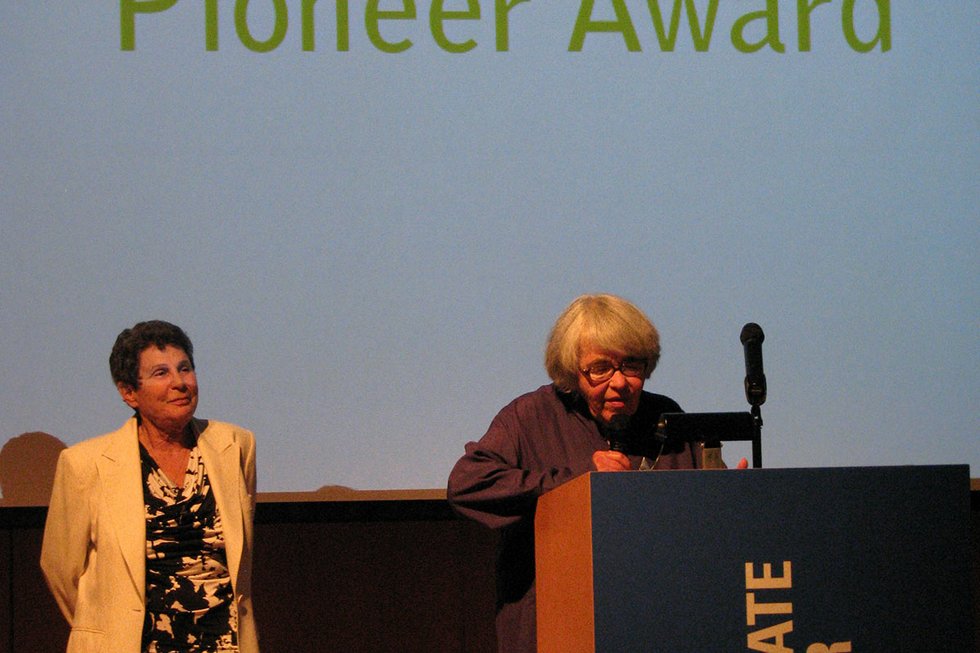
She never thought of herself as a leader and she would have mocked the idea that she would become famous, but feminist author and artist Kate Millett, who died of a heart attack in Paris last Wednesday, reluctantly became both. It all came about after the publication of her 1970 book Sexual Politics, which caused a firestorm across America when it hit bookstores.
The groundbreaking text set a new radical tone for the just nascent womens liberation movement. Betty Friedan was the middle-class maven whose The Feminine Mystique explored how the role of housewives was profoundly limited. Germaine Greer played the flirt card in The Female Eunuch while she investigated womens powerlessness. But Millett, in powerful, no-nonsense prose, talked explicitly about how women were socialized to become less than men in every way. She was a key player in the nature versus nurture debate.
Her most powerful idea and the title of the book focused on the way male-female power relations are embedded in heterosexual dynamics not social dynamics, mind you, but sexual dynamics explicitly. In her sensational opening chapter, she analyzed the sex sequences in works by Norman Mailer, D.H. Lawrence and Henry Miller to show how, in mainstream literary works, these authors made womens subordination sexy.
Mailer, who styled himself as a lover of women, howled his outrage, and critics were not exactly kind. This was Milletts doctoral thesis for Columbia Universitys English department and nobody had seen anything like it. I remember reading it on a plane and the male passenger beside me couldnt resist asking me what the title meant. When I explained it in a friendly manner, I might add I could see him desperately looking around the aircraft to see how he could get away from me. But a generation of budding feminists ate it up, and it was such a phenomenon that Millett was on the August 1970 cover of Time Magazine.
Millett helped make books central to the health of feminism. Those bound treasures brought the message to the people, hundreds of womens bookstores opened all over North America within barely a decade and, more than any other political movement, books made instant leaders out of their authors.
Millett wasnt interested in that. She was actually quite shy and had a hard time handling the intense public scrutiny. She was married to the sculptor Fumio Yoshimuro but had had affairs with women, something Time Magazine couldnt wait to share with its readers, famously suggesting that her lesbianism cast doubt on her theories. She eventually came out, she and her husband divorced in the 80s and Millett recently married her partner, Sophie Keir.
Along with the unwanted spotlight came expectations that she would maintain a high profile and be a constant public spokeswoman for the movement. She bemoaned the pressure, wishing she could get back to her own sculpting and to having some semblance of privacy. In 1974, she wrote Flying, a candid account of how painful her fame had become, and followed it up with Sita in 1977, a near confessional about her sexuality.
I met her once at a dinner party in Toronto, and she was charming and charismatic an expert storyteller but, though we were practically at her feet on the floor, she didnt really want to talk politics at all. Fame and the attendant political leadership that was foisted upon her became her cross to bear and she had difficulty carrying it. She was diagnosed as bipolar and wrote The Loony-Bin Trip in 1990 about her encounters with medical doctors.
And she had the misfortune of being famous without ever having the financial rewards to go with it, something that was a cause of deep distress for her. She actually didnt want to live like a hippie for her entire life.
But she did find love. She and Keir were vacationing in Paris to celebrate their birthdays, something that had become a tradition for the couple. Theres something beautiful about the fact that that this gifted woman, who lived a charmed intellectual life, but who also suffered deeply, was in one of the most beautiful cities in the world with the woman she loved when she died.
And though shes gone, Sexual Politics survives as one of the most important political books of the 20th century.
susanc@nowtoronto.com | @susangcole












